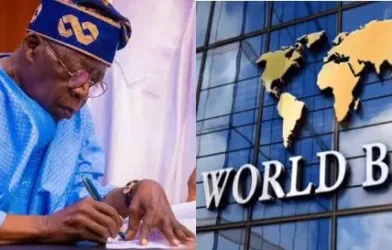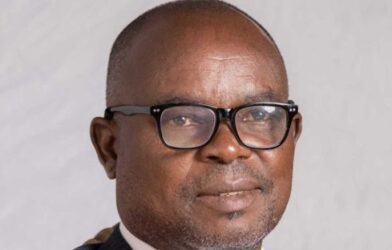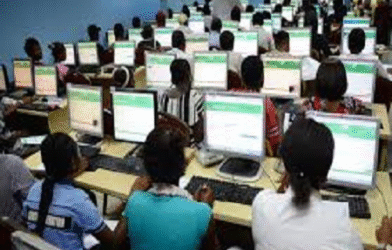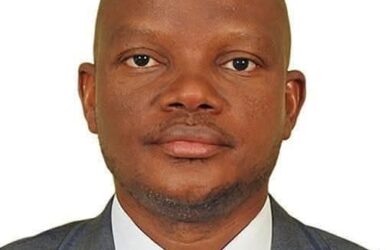The administration of President Bola Ahmed Tinubu emerged on May 29th of last year with its inauguration.
The arrival on the big political stage as the president of the world’s largest but one of the poorest nations, of President Tinubu, followed a tumultuous electoral contestation in 2023 and the subsequent vicious post-election litigation that reached the Supreme Court of Nigeria.
The Supreme Court struck down the petitions of the political opposition parties of Peoples Democratic Party of erstwhile Vice president Alhaji Atiku Abubakar and the Labour Party of erstwhile Anambra State governor, Mr. Peter Obi.
With the end to the legal squabbling by politicians, comes the real governance of the country. However, can we say that Nigerians have seen the best style of government otherwise classified as good governance?
The aforementioned interrogatory, is imperative because, as a fact, between last May and now, the story of a dominant majority of Nigerians can at best be described as tumultuous and troubling.
This is exactly because, the economy of Nigeria has been battered by a number of factors amongst which are the general price instability, the depreciation of the naira, expanding poverty, hunger, and deprivation.
We must note that in 2018, the National Bureau of Statistics had determined that there are 133 million multidimensionally poor households in Nigeria. Experts had then concluded that Nigeria became the World’s capital of poverty by overthrowing India which held that infamous position. India has over a billion people. Nigeria, on the other hand is estimated to have a little above 200 million people.
Then, again, the distinguishing policy miscalculation by the current federal government that has induced one of the fiercest crises of costs of living was the decision by the current president to hike the price of petrol that followed he withdrawal of subsidy on fuel as announced on assumption as president by Tinubu.
The truth is that the high costs of petrol induced unimaginable poverty situation of most Nigerians that becomes increasingly complicated by the days since the very pronouncement of the hike in the pump price of petrol which escalated the cost of living.
Following these excruciating economic problems, millions of Nigerian youths got compelled to coordinate two major protests which was held in August and October of this year.
In the first segment of the protests in August, several people were shot dead and hundreds more were arrested by the government. Despite fears of another crackdown as police deployed heavily to potential protest locations nationwide, demonstrators were determined to be heard, as observed by the global television networth based in the middle east: Al jazeera.
“The ordinary people are suffering, but this government doesn’t care because they cannot feel the pulse of the ordinary people,” Juwon Sanyaolu, leader of the Take it Back movement, an advocacy organisation at the forefront of the protests, told Al Jazeera from Abuja.
Organisers timed Independence day’s demonstrations to coincide with the country’s 64th Independence Day celebrations, marking Nigeria’s freedom from former colonial ruler Britain in 1960.
As reported however, many say there’s very little to celebrate when large numbers of the 200 million population struggle to survive while government officials are living large.
Tagged #FearlessInOctober, the protests’ demands, Sanyaolu said, were for the government to end hunger by discarding fiscal measures recommended by the World Bank that have led to higher fuel prices – measures the activist called “anti-poor”. The be all and end all of these crises in the polity, is the absence of good governance in Nigeria.
What is good governance? If we may ask:
Governance, according to a publication from the office of the high Commissioner for human rights at the United Nations, refers to all processes of governing, the institutions, processes and practices through which issues of common concern are decided upon and regulated. Good governance adds a normative or evaluative attribute to the process of governing.
If we look at that concept from a human rights perspective it refers primarily to the process whereby public institutions conduct public affairs, manage public resources and guarantee the realization of human rights.
The office of the High Commissioner for human rights stated that while there is no internationally agreed definition of ‘good governance’, it may span the following topics: full respect of human rights, the rule of law, effective participation, multi-actor partnerships, political pluralism, transparent and accountable processes and institutions, an efficient and effective public sector, legitimacy, access to knowledge, information and education, political empowerment of people, equity, sustainability, and attitudes and values that foster responsibility, solidarity and tolerance.
In summary, good governance relates to the political and institutional processes and outcomes that are necessary to achieve the goals of development. The true test of ‘good’ governance is the degree to which it delivers on the promise of human rights: civil, cultural, economic, political and social rights. The key question is: are the institutions of governance effectively guaranteeing the right to health, adequate housing, sufficient food, quality education, fair justice and personal security?
Key attributes of good governance
The Human Rights Council has identified the key attributes of good governance:
• transparency
• responsibility
• accountability
• participation
• responsiveness (to the needs of the people)
How are good governance and human rights linked?
We have no option but to accede to the consensus that good governance and human rights are mutually reinforcing.
Human rights standards and principles provide a set of values to guide the work of governments and other political and social actors. They also provide a set of performance standards against which these actors can be held accountable. Moreover, human rights principles inform the content of good governance efforts: they may inform the development of legislative frameworks, policies, programmes, budgetary allocations and other measures.
On the other hand, without good governance, human rights cannot be respected and protected in a sustainable manner. The implementation of human rights relies on a conducive and enabling environment. This includes appropriate legal frameworks and institutions as well as political, managerial and administrative processes responsible for responding to the rights and needs of the population.
The links between good governance and human rights can be organised around four areas:
1. Democratic institutions
When led by human rights values, good governance reforms of democratic institutions create avenues for the public to participate in policymaking either through formal institutions or informal consultations. They also establish mechanisms for the inclusion of multiple social groups in decision-making processes, especially locally. Finally, they may encourage civil society and local communities to formulate and express their positions on issues of importance to them.
2. Public service delivery
In the realm of delivering state services to the public, good governance reforms advance human rights when they improve the state’s capacity to fulfill its responsibility to provide public goods which are essential for the protection of a number of human rights, such as the right to education, health and food. Reform initiatives may include mechanisms of accountability and transparency, culturally sensitive policy tools to ensure that services are accessible and acceptable to all, and paths for public participation in decision-making.
3. Rule of law
When it comes to the rule of law, human rights-sensitive good governance initiatives reform legislation and assist institutions ranging from penal systems to courts and parliaments to better implement that legislation. Good governance initiatives may include advocacy for legal reform, public awareness-raising on the national and international legal framework and capacity-building or reform of institutions.
4. Anti-corruption
In fighting corruption, good governance efforts rely on principles such as accountability, transparency and participation to shape anti-corruption measures. Initiatives may include establishing institutions such as anti-corruption commissions, creating mechanisms of information sharing, and monitoring governments’ use of public funds and implementation of policies.
These sets of objectives itemised by the Office of the High Commissioner for human rights look the same conceptually with the
Council of Europe 12 principles of good governance which are:
Fair conduct of electoral representation,
Responsiveness,
Efficiency and effectiveness
Openness and transparency
Rule of law
Ethical conduct
Competence and capacity
Innovation and openness to choose
Sustainability and long term orientation
Sound financial management
Human Rights, cultural diverse and cohesion
Accountability.
This writer accepts that citizen participation is a key element of a good governance system. It provides private individuals and groups , the Opportunity to inform, influence, monitor and evaluate public decision process and action. The Nigerian Constitution in chapter two mandate Nigerian citizens to participate actively in the government of the Country.
But the trouble with the government of the day is that, whenever the people make effort to participate in contributing to the institutionalisation of good governance, there is definitely bureaucratic and political obstructions that impede this participatory aspirations of the people. When the citizens led by youngsters went out to the streets to peacefully demonstrate against bad governance, the Federal Government sent armed security operatives to kill the protesters. Many were killed even as dozens were arrested and detained. Whereas the President was aversed to the idea of young people demonstrating peacefully to pass their messages to the government, the president went ahead to announce a month-long youths conference. He made the announcement during the independence day celebrations.
The Nigerian leader said the “conference will be a platform to address the diverse challenges and opportunities confronting our young people, who constitute more than 60 per cent of our population.”
Speaking in a televised Independence Day broadcast, he said the conference will be held for 30 days.
“It will provoke meaningful dialogue and empower our young people to participate actively in nation-building. By ensuring that their voices are heard in shaping the policies that impact their lives, we are creating a pathway for a brighter tomorrow.”
Essence of conference
The President said the conference would ensure that the voices of young people are heard in shaping policies that impact their lives, creating a pathway for a brighter tomorrow.
As aforementioned, the decision may not be unconnected to the agitation among the youths across the country, which has led to continued public protests since the #EndSARS protest against police brutality and harassment in 2020 and the repeated as #EndBadGovernance protest that commenced in August and happened across major cities in the country on October 1st.
The Nigerian leader said too that: “As we work to overcome the challenges of the day, we remain mindful of the next generation as we seek to galvanize their creative energy towards a better future,” he said.
“We lead today with the future we wish to bequeath to our children in focus, recognizing that we cannot design a future that belongs to them without making them its architects.”
The President added that the conversations would unite young people to collaboratively develop solutions to issues such as education, employment, innovation, security, and social justice.
“The modalities of this confab and selection of delegates will be designed in close consultation with our young people through their representatives,” he added.
He noted that the government would ensure that young people’s aspirations are at the heart of the conference’s deliberations.
Implementation
The President noted that the government will “thoroughly consider and implement the recommendations and outcomes from this forum as we remain resolute in our mission to build a more inclusive, prosperous, and united Nigeria.”
“Our government is implementing several other youth-centric programmes to give our young people an advantage in the rapidly changing world. We are implementing, amongst others, the 3 million Technical Talents programme (3MTT) of the Ministry of Communications, Innovation and Digital Economy, aimed at building Nigeria’s technical talent backbone,” he said.
This writer thinks the youths conference is a continuation of the uniquely Nigerian systemic leadership dysfunctionality and a big attempt at duplication of even institutional platforms such as the ministry of youth affairs that has been in place for long and as we write, the current president appointed a crowd of two ministers to coordinate activities of the smallest ministry of youths development in the country.
I believe that this duplicity amounts to corruption just as some development experts concluded that “The Duplicity of Initiatives and Efforts as Enablers of Corruption.
These experts rationalised their opinion as follows: “With government, there were several initiatives and efforts towards responding to emergencies in the country. For instance, the NEMA, the Victims Support Fund (VSF), Presidential Initiative on the North East (PINE), Presidential Commission on the North-East Initiative (PCNI), NEMA, the Bama Initiative, were all geared towards addressing the humanitarian crisis in the northeast region. The Office of the National Security Adviser (ONSA) was also involved in peace building and security related interventions, which made Coordination difficult as a result of the challenge of duplicity and competition between and among government agencies. Recently too, the North East Development Commission (NEDC) was inaugurated by President Muhammadu Buhari. Such multiplicity of initiatives and structures for responding to emergencies by the government further complicates efforts towards transparency and accountability. (The compromised state; how corruption sustains insecurity in Nigeria by Chris M.A Kwaja & Yunusa Z. Yau).
As aforementioned, the decision to convene a month-long youths conference is not the best panacea to the growing discontent among Nigerians which flowed from the heightened and excruciating costs of living.
So why is this government determined to once more waste and fritter billions of Naira of public funds on frivolities such as the youth conference rather than follow through with a meticulous implementation of the All Progressives Congress’s economic blueprints that should also incorporate the positions canvassed by the youths of Nigeria who articulated their demands and charter of expectations as publicised during the two major protests that happened in August and on October 1st?
By the way, what is the mandate of the Ministry for youth affairs if the government is still trying to mobilise youths to congregate in Abuja at public costs for a month? What happened to the reports of all the previous national conferences in which the youths were adequately represented and their interests, aspirations and programmes articulated and incorporated in the final reports?
Emmanuel Onwubiko Writes From Abuja.















Comments are closed